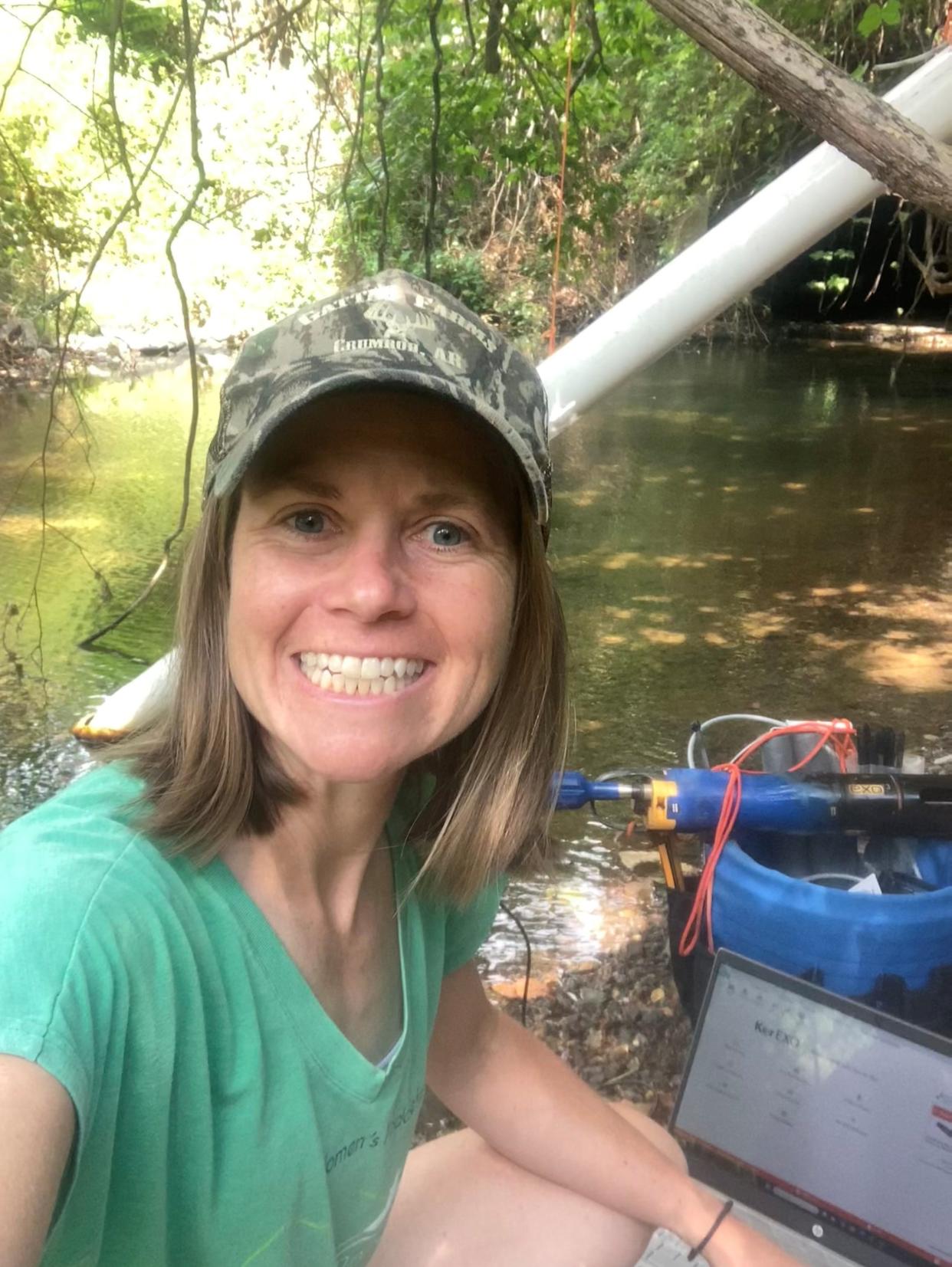Opinion: Buncombe County can tackle plastic bag pollution by passing the right policies
Like most of us, I spent last Sunday tracking Taylor Swift’s plane as she made her way to see her beau win his third Super Bowl. Then, I came across an opinion column that brought me back to reality — and a low point from last year.
The piece, by Patrick Gleason of the Americans for Tax Reform, applauded North Carolina’s lawmakers for passing a budget that included a last-minute provision written by a shadowy lobbying group. That provision strips local governments of the power to regulate single-use plastic bags despite broad public support.
Why was Gleason picking a scab on a wound inflicted back in October? To trumpet a January report that purports to show that banning plastic bags in New Jersey led to an increase in plastic bag consumption and greenhouse gasses. Take that, hippies!
Except the new report that Gleason touts was funded by the plastic bag industry and sits behind a $5,400 paywall. The report was issued by the Freedonia Group and commissioned by the American Recyclable Plastic Bag Alliance — a name meant to obscure the true purpose of the ARPBA: to lobby against plastic bag bans and other laws aimed at reducing plastic pollution.
I’m not paying $5,400 to read the methodology of a report paid for by the very industry it is trying to defend. Instead, let me tell you about what happened in New Jersey and why that wouldn’t have happened in Buncombe County.
New Jersey became the first state in the country to ban both paper and plastic shopping bags in 2022. Forgetful customers could still buy a reusable shopping bag at the checkout. Going first should be commended, but it means you may have to revisit a law to deal with unintended consequences.
As Gleason points out, one of those unintended consequences was that grocery delivery drastically increased during the pandemic and never went back down to pre-pandemic levels. Because New Jersey’s law also banned paper bags, grocers resorted to using reusable bags for curbside and delivery. Plastic reusable bags are thicker and have a larger carbon footprint than single-use plastic bags, but they are made to be used hundreds of times, not for one-off deliveries. Additionally, the definition of reusable bags in the New Jersey law, like that of the California law that preceded it, created a loophole by which plastic bag manufacturers could make plastic shopping bags slightly thicker and heavier, and stamp them with “this is a reusable bag.” These bags are nearly identical to their disposable predecessors but not necessarily sturdier. The New Jersey law succeeded in changing customers’ behavior, and the total number of plastic bags consumed declined by 60%. However, because the bags were heavier, the overall weight of plastic used increased.
We no longer chisel our laws into stone tablets. Lawmakers in New Jersey and California are now acting to fix their laws and close these loopholes.
Here in North Carolina, one of the benefits of being behind the curve is that we can learn from these hiccups and build on the successes of others. The ordinance we drafted for Buncombe County banned plastic bags but kept paper bags available for a 10-cent fee. Pairing a ban on plastic with a fee on paper is the best way to get consumers to bring their own reusable bags to the store. In San Jose, California, for example, a ban on plastic bags with a 10-cent fee on paper increased the percentage of customers bringing their reusable bags to the store from 4% to 62%. This is just one case study.
North Carolina’s Constitution guarantees our right to a clean and healthy environment. With so many recent studies showing plastics as ever-present in our environment and a growing threat to public health, the legislators and lobbyists who snuck the anti-bag-ban provisions into the budget should be vilified, not lauded, as Gleason suggests.
They did this behind closed doors without political discourse or public comment. They allowed corporate greed to supersede the quality of life of North Carolinians. They failed us then, and they are failing our future generations. We need less plastic, and the only way to get there is to pass policies that require industry and business to do the right thing.
If you’re interested in tackling North Carolina’s plastic problem, contact anna@mountaintrue.org and get involved with the Plastic-Free WNC coalition.
More: Opinion: NJ plastic bag research vindicates NC's decision to prohibit local bag bans
More: Plastic regulation coming to Asheville: City Council OKs plastic reduction measures

Anna Alsobrook leads MountainTrue’s plastic reduction program.
This article originally appeared on Asheville Citizen Times: Opinion: Plastics are growing threat to environment and public health
